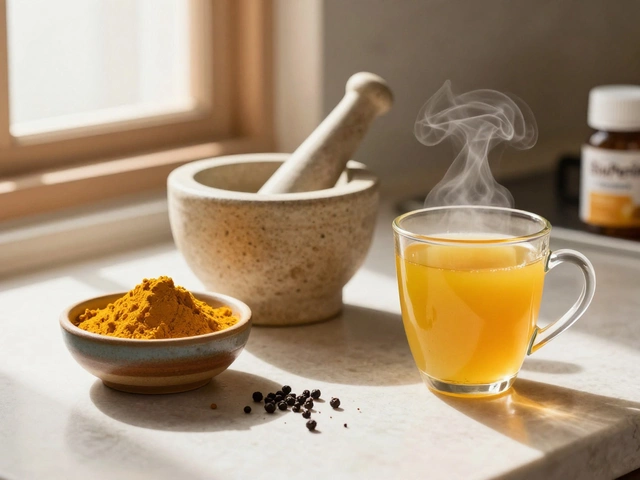Ayurvedic medicine might sound like the perfect natural remedy for just about anything, right? But before you ditch your current healthcare routine, it’s worth having a look at some of the hurdles Ayurveda faces. Let’s break it down.
First up, there’s the snag with scientific backing. You’ve probably heard about how this ancient wisdom lacks the kind of rigorous clinical studies that modern medicine relies on. This doesn’t mean Ayurveda is all quackery, but it does highlight why some folks are hesitant to fully embrace it. You see, without solid research, it’s hard to ensure the safety and efficacy of every Ayurvedic treatment out there.
- Lack of Clinical Studies
- Potential Contamination Issues
- Varying Practitioner Standards
- Interaction with Conventional Medicines
Lack of Clinical Studies
One major hiccup in fully trusting Ayurvedic medicine is its shortage of clinical studies. In the world of healthcare, studies are essential to prove whether treatments work and are safe. Yet, Ayurveda is mostly backed by centuries-old wisdom and anecdotal evidence instead of rigorous modern trials.
Why is this a big deal? Well, it makes it tricky for healthcare professionals to recommend Ayurveda treatments with confidence. When treatments haven’t been through the wringer of scientific testing, it raises questions: Are they really effective? Are they safe for everyone?
Where's the Research?
There are challenges in conducting clinical trials for Ayurveda, often due to its individualized treatment plans. Each person’s treatment can vary widely based on the ancient system's philosophy of body types, known as 'doshas.' Trying to standardize this for research purposes isn't a walk in the park.
Plus, securing funding for these studies is another hurdle. Most research is funded by pharmaceutical companies who see no profit in testing herbs and practices that can’t be patented. This means less investment in finding the hard evidence needed to validate the effectiveness of Ayurvedic practices.
| Challenge | Impact |
|---|---|
| Lack of Standardization | Hard to measure effectiveness consistently |
| Funding Issues | Few resources for rigorous research |
| Anecdotal Evidence | Less trust in safety and efficacy |
In a nutshell, while many use and trust ayurvedic medicine, the absence of clinical studies which modern medicine demands means it might not be for everybody. It encourages individuals to dig deeper and consult healthcare providers before diving into any treatment.
Potential Contamination Issues
One of the less talked about disadvantages of Ayurveda is the risk of contamination, particularly with heavy metals. It's not something most people think about when reaching for herbal remedies, but it’s a real concern. The purity of Ayurvedic products can vary, and some can contain harmful substances if not properly processed.
Let's get specific. Studies have found that some ayurvedic medicine products, especially those imported from certain regions, contained traces of lead, mercury, and arsenic. Why does this happen? Sometimes it's due to the traditional manufacturing processes where metals are intentionally added, with the belief that they enhance the therapeutic effects. Other times, contamination occurs because of poor quality control.
What You Can Do
So, how can you stay safe while exploring Ayurveda? Here are a few tips:
- Research and choose reputable brands: Stick to well-known brands with strong quality control measures. They often have certifications to prove their products are safe.
- Consult a qualified practitioner: Always get advice from someone who knows their stuff, preferably someone trained in both traditional and modern medical practices.
- Check for certifications: Look for products that have been tested by independent labs for purity and safety.
- Avoid self-prescribing: Seriously, don’t turn your kitchen into an Ayurvedic lab without guidance.
Being mindful of these factors can help you avoid the pitfalls while still enjoying the benefits that Ayurveda has to offer.

Varying Practitioner Standards
When we talk about Ayurveda and its credibility, the qualifications of the practitioners come up pretty quick. Unlike your average GP down the road, not every Ayurvedic practitioner holds a formal degree or certification that’s standardized worldwide. This inconsistency is a huge red flag for some people considering these treatments.
So why does this matter? Well, imagine you're getting treatment from someone whose knowledge is solely based on passing down family tradition. While there's wisdom in tradition, the lack of formal education can mean some critical gaps in their medical understanding. Even worse, some might exploit this gap and practice without sufficient knowledge, which can lead to poor guidance or unsafe remedies.
Qualification Challenges
Ayurvedic practitioners typically come from varied backgrounds. In countries like India, there are esteemed institutions offering comprehensive training. But in places where Ayurveda isn't mainstream, the training quality can vary massively. Some practitioners take short courses that offer questionable coverage.
Spotting Qualified Practitioners
- Ask for certifications or degrees from recognized institutes.
- Check reviews or references from previous clients.
- Inquire about their approach towards addressing complex health conditions.
Stats on Expertise
To better understand this disparity, take a look at the relative distribution:
| Country | Percentage of Registered Practitioners | Percentage with Formal Education |
|---|---|---|
| India | 80% | 70% |
| UK | 50% | 30% |
| USA | 40% | 25% |
Clearly, doing a bit of homework and verifying practitioner credentials can help you navigate this landscape more safely.
Interaction with Conventional Medicines
So, you've got your Ayurveda skills down or maybe you're just curious about it. Either way, it’s crucial to chat about how it plays with your everyday meds. Think of it like mixing friend groups; sometimes they get along, other times it’s messy.
A key concern is the interaction between Ayurvedic treatments and the medications you might be taking from a regular doctor. Missing this can mean some unwanted surprises. Why? Because some Ayurvedic herbs may enhance or suppress the effects of these drugs.
Common Interactions
Take guggul, for instance, a popular Ayurvedic herb used for cholesterol management. If you're already on cholesterol meds, guggul might make them work overtime, potentially escalating side effects. Not ideal, right?
Then there’s St. John's Wort—true, it’s more of a Western herbal remedy, but it's sometimes tossed into the Ayurvedic mix. This little plant can seriously mess with antidepressants, reducing their effectiveness and leaving you stressed out, literally.
As Dr. Vikram Chauhan, a known expert in Ayurveda, once said, "Ayurveda and modern medicine can coexist, but it's important to communicate treatment plans to ensure safety."
Why Talk to Your Doctor?
Before starting an Ayurvedic regimen, it’s wise to discuss your plans with your doctor. Yes, even if it's all natural and you think you're just adding a dash of herbal benefit to your life. Fine-tuning how everything gels together isn’t just for chemists in labs but is important for your health too.
Here’s a quick tip list for you:
- Honesty Is Key: Always tell your doctor about any Ayurvedic remedies you're taking. It’s not about choosing sides, just safety first.
- Do Your Homework: Get informed about known interactions using reputable sources. It’s easier than you think.
- Start Slow: When introducing new Ayurvedic treatments, take it easy. Go step by step, just like your morning yoga routine!
Closing this out, remember that while both systems of medicine have their strengths, they need lines of communication open between them. It’s not about picking one over the other but finding your health sweet spot.





